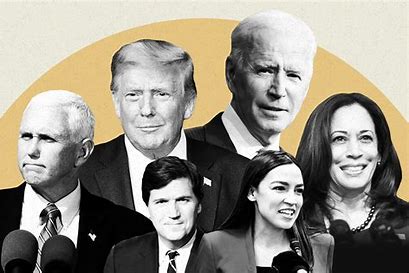US Vice President Kamala Harris has unveiled her economic proposals ahead of the upcoming presidential elections, focusing on addressing key financial concerns faced by Americans. Amid ongoing fears of a potential recession, Harris aims to tackle rising taxes and persistent inflation in basic goods and services, issues that have lingered since the COVID-19 pandemic.
Her economic plan outlines several ambitious measures, including tax cuts for the middle and lower class, as well as tax incentives to stimulate economic growth. Many of her proposals build upon President Joe Biden’s initiatives, expanding their scope to tackle current economic challenges.
Key Proposals:
1. Taxing the Wealthy
Harris advocates for a 25% minimum tax on individuals with wealth exceeding $100 million, including unrealized capital gains. Additionally, for those earning over $1 million annually, she plans to raise the long-term capital gains tax from 20% to 28%. Importantly, Harris has committed to not increasing taxes on households earning less than $400,000 annually, continuing Biden’s policy.
2. Business Taxes
Harris intends to reverse part of Donald Trump’s 2017 tax cuts, which reduced the corporate tax rate from 35% to 21%. She proposes raising the corporate tax rate to 28%, which budget experts estimate could generate $1 trillion in revenue over the next decade. This increase, while boosting federal income, would likely reduce company profits.
3. Child Tax Credit
Building on Biden’s COVID-era enhancement of the Child Tax Credit, Harris plans to permanently increase the credit from $2,000 to $3,600 per child. She also proposes a one-time $6,000 bonus for families with newborns. This contrasts with the $5,000 credit increase proposed by Trump’s running mate, JD Vance, which has not been formally adopted by Trump’s campaign.
4. Affordable Housing
With rents and home prices surging across the US—home prices have risen by 50% and rents by 35% in the last five years—Harris plans to increase affordable housing through tax incentives. She aims to add 3 million new homes over the next four years. To support first-time buyers, she proposes a $25,000 tax credit for down payments, alongside a $40 billion innovation fund for local governments to develop affordable housing.
5. Tax Relief for Small Businesses
In stark contrast to the corporate tax cuts implemented by Trump, Harris is focused on supporting small businesses. She proposes raising the tax deduction for start-up costs from the current $5,000 to $50,000, offering substantial relief for entrepreneurs, given that the average start-up cost in the US is around $40,000.
6. Regulating Grocery Prices
As grocery prices remain high, Harris has pledged to introduce a ban on excessive price hikes for food and groceries, addressing the concerns of consumers who have felt the impact of rising costs without seeing relief.
Harris’ proposals reflect her commitment to addressing economic disparities, with a focus on supporting the middle class, small businesses, and affordable housing while ensuring the wealthy and large corporations contribute more through taxes.

